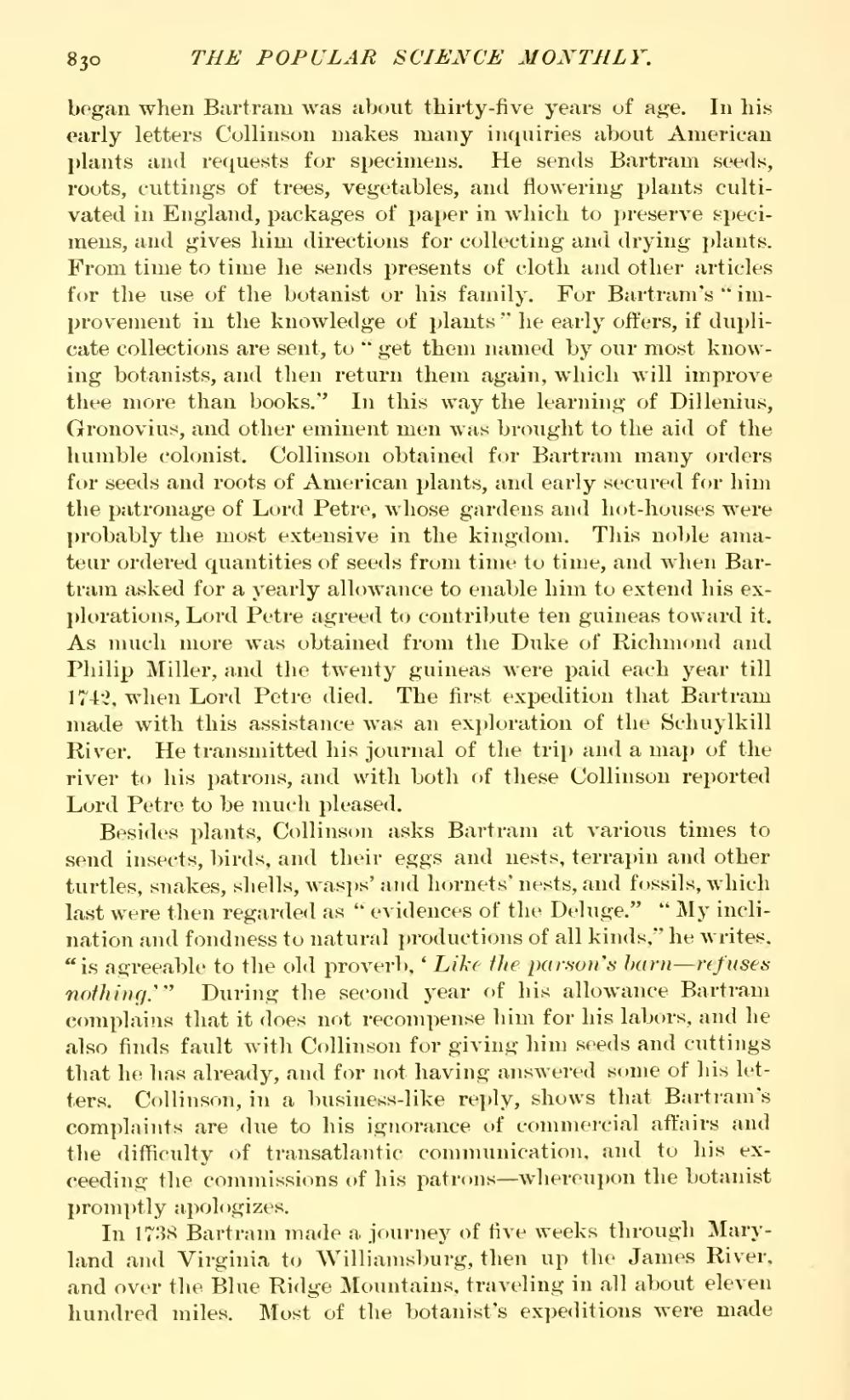began when Bartram was about thirty-five years of age. In his early letters Collinson makes many inquiries about American plants and requests for specimens. He sends Bartram seeds, roots, cuttings of trees, vegetables, and flowering plants cultivated in England, packages of paper in which to preserve specimens, and gives him directions for collecting and drying plants. From time to time he sends presents of cloth and other articles for the use of the botanist or his family. For Bartram's "improvement in the knowledge of plants" he early offers, if duplicate collections are sent, to "get them named by our most knowing botanists, and then return them again, which will improve thee more than books." In this way the learning of Dillenius, Gronovius, and other eminent men was brought to the aid of the humble colonist. Collinson obtained for Bartram many orders for seeds and roots of American plants, and early secured for him the patronage of Lord Petre, whose gardens and hot-houses were probably the most extensive in the kingdom. This noble amateur ordered quantities of seeds from time to time, and when Bartram asked for a yearly allowance to enable him to extend his explorations, Lord Petre agreed to contribute ten guineas toward it. As much more was obtained from the Duke of Richmond and Philip Miller, and the twenty guineas were paid each year till 1743, when Lord Petre died. The first expedition that Bartram made with this assistance was an exploration of the Schuylkill River. He transmitted his journal of the trip and a map of the river to his patrons, and with both of these Collinson reported Lord Petre to be much pleased.
Besides plants, Collinson asks Bartram at various times to send insects, birds, and their eggs and nests, terrapin and other turtles, snakes, shells, wasps' and hornets' nests, and fossils, which last were then regarded as "evidences of the Deluge." "My inclination and fondness to natural productions of all kinds," he writes, "is agreeable to the old proverb, 'Like the parson's barn—refuses nothing.'" During the second year of his allowance Bartram complains that it does not recompense him for his labors, and he also finds fault with Collinson for giving him seeds and cuttings that he has already, and for not having answered some of his letters. Collinson, in a business-like reply, shows that Bartram's complaints are due to his ignorance of commercial affairs and the difficulty of transatlantic communication, and to his exceeding the commissions of his patrons—whereupon the botanist promptly apologizes.
In 1738 Bartram made a journey of five weeks through Maryland and Virginia to Williamsburg, then up the James River, and over the Blue Ridge Mountains, traveling in all about eleven hundred miles. Most of the botanist's expeditions were made
